#Aeneis
Explore tagged Tumblr posts
Text
Juno/Hera @ the Trojans

#juno#romans#roman mythology#aeneis#the aeneid#virgil's aeneid#aeneas#juno goddess#ancient rome#roman history#classics#classical civilisation#classical history#classical studies#jupiter#usc trojans#the trojan war#greek mythology#classical mythology#hera greek mythology#greek gods#roman gods#tagamemnon#the iliad#iliad#achilles#hector#hera#zeus#apollo
104 notes
·
View notes
Text
zaman zaman, kendi içimin derinliklerinde vergilius'un engin, hüzünlü manzaralarına,gözyaşı ile perçinlenmiş alacakaranlıklarına rastlamışımdır.
marguerite yourcenar - hadrianus'un anıları
#kitap#edebiyat#blogger#felsefe#kitaplar#blog#kitap kurdu#şiir#marguerite yourcenar#hadrianus'un anıları#marcus aurelius#kendime düşünceler#meditations#friedrich nietzsche#ecce homo#tan kızıllığı#vergilius#aeneis#homeros#ilyada#odessey#odesseius#king oidipus#kral oidipus#hamlet#william shakespeare#karl marx#karl marks#bilgenin sarsılmazlığı üzerine#seneca
8 notes
·
View notes
Text
On the carelessness of Aeneas
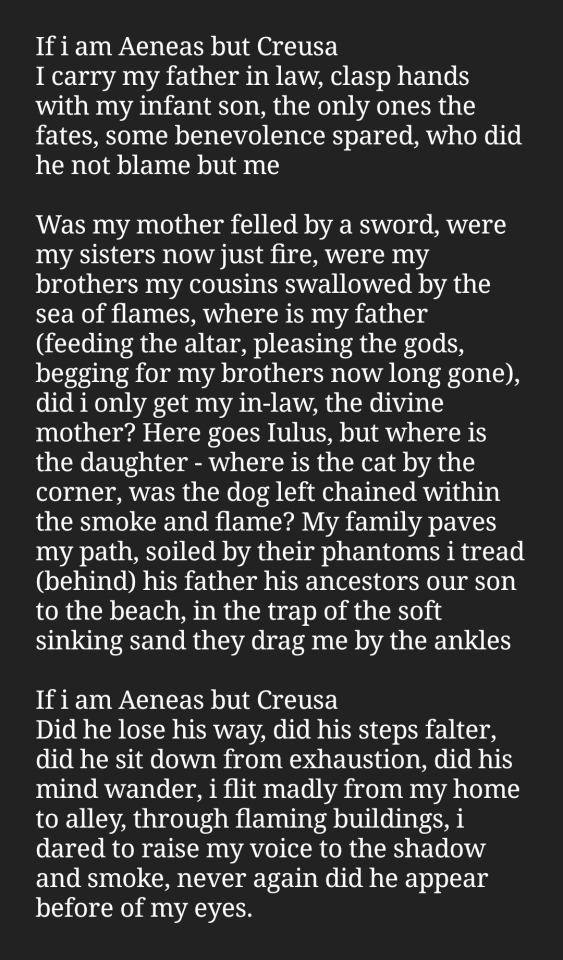
#the aeneid#aeneid#aeneis#creusa#aeneas#latin#poetry#hello im doing my BA thesis on creusa#im covered in blood frothing at the mouth#if you disagree with my interpretation no you don't#wildkitte
4 notes
·
View notes
Text
Die Tore der Hölle stehen Tag und Nacht offen; Sanft ist der Abstieg, und leicht ist der Weg: Doch zurückzukehren und den heiteren Himmel zu erblicken, Darin liegt die Aufgabe und die gewaltige Mühe. -- Virgil, Aeneis

The gates of hell are open night and day; Smooth the descent, and easy is the way: But to return, and view the cheerful skies, In this the task and mighty labor lies. -- Virgil, Aeneid (trans. Dryden)
#Virgil#Aeneis#Aeneid#EpicPoetry#ClassicalLiterature#AncientWisdom#HellAndHeaven#JourneyOfLife#StruggleAndTriumph#PhilosophicalThoughts#LiteraryQuotes#EpicJourney#Mythology#RomanLiterature#PoetryQuotes#Classics#LiteraryAnalysis#MoralLessons#JohnDryden#SpiritualJourney#kula#mood#iamok#KamalaHarris#VicePresident#WomenInPolitics#Leadership#BreakingBarriers#FemaleEmpowerment#WomenLeaders
0 notes
Text
I will take what is mine-1
Summary: (Y/N) Baratheon will have to face a dragon that now sits on the iron throne and what will become of her.

(Y/N) Baratheon was the wife to Aemond Targaryen they had wed days before Prince Lucerys was killed, (Y/N) had become pregnant with twin boys named Aeneys and Maegor Targaryen second of their names, moons later Aemond had flew back to meet his loyal wife and sons along with his niece, as Aemond laid naked with his wife for the last time as the morning light came Aemond flew off to battle his uncle and this time he did not return.
“(Y/N) Baratheon we thank you and your sons for coming to Kings Landing,the journey must have been long?” Jacaerys asks (Y/N).
“Yes your grace it was a long journey but we are happy to be here” (Y/N) says softly.
“Congratulations to you, I heard you gave birth to twin boys?” Jace asks (Y/N).
“Yes your grace two beautiful sons” (Y/N) says.
“Your sons are with you?” Jace asks.
“Yes your grace my sons Aenys and Maegor are here with their wet nurse” (Y/N) says to Jace.
“Bring them in then” Jace tells (Y/N) as she makes her way to get her sons as (Y/N) walks in Jace smiles at her and the twins.
“How old are they?” Jace asks (Y/N).
“They are about to have their first name day your grace” (Y/N) tells Jace.
“(Y/N) Baratheon you shall become my wife and your sons will be raised with my brothers and your sons will be raised as mine” Jace announces to the masses, all the lords in his court look at their King surprised.
“Your Grace, you are already married to Lady Baela?” A lord asks Jace.
“Yes me and Baela are married but I have decided that I will take a second wife like my ancestor Aegon the Conqueror did and Lady (Y/N) will be my second wife” Jace says to the masses and leaves everyone to talk as (Y/N) is taken to a room to sleep as Jace makes his way to his room he shares with Baela.
Jace walks in and sees Baela sitting on the bed waiting for him to walk in.
“Were you ever going to tell me?” Baela asks Jace.
“Tell you what Baela?” Jace asks.
“That you plan to marry (Y/N) Baratheon and have her as your second wife and that you will claim her sons with Aemond!” Baela yells at Jace.
“Baela I am King. I will do as I please and I will take what is mine!” Jace yells at Baela.
“No I forbid it Jace I am to be your only wife!” Baela yells.
Jace walks over to Baela and grabs her by the throat and chokes her slightly and holds her against the wall as Baela hits Jace to get him off of her as he lays her go Baela falls to the floor coughing and breathing in air fast as she looks up at Jace.
“Know your place Baela, be happy that you are my first wife, but know that she will always have my heart and my love. It has always been (Y/N) and it always will be, do you understand me Baela?” Jace asks Baela.
“Yes…… Yes….. I……. Understand” Baela says roughly through her hard breathing.
“Good and get dressed we have a small council meeting to attend” Jace tells Baela as he leaves their room.
Small Council Meeting
(Y/N) sits next to Jace as Baela sits on the other side of Jace.
“Your Grace word form Storms End the Lord Baratheon wants his daughter and grandsons to come back home and he will give you King Aegon’s last living child the Princess Jaehaera Targaryen” the maester reads the letter.
“Write back to Lord Baratheon and tell him to bring the princess back home or he and his family will burn” Jace tells the maester.
“My King….. please let me send word to my father he will listen to me” (Y/N) pleads with Jace.
“Very well, dear wife write to your father and make him come to King's Landing” Jace tells (Y/N).
“ King Jacaerys Targaryen and his wife’s Queen Baela Targaryen and Queen (Y/N) Targaryen” Ser Steffon announces.
(Y/N) looks at her father and sister’s with tears in her eyes.
“Lord Baratheon we are happy to have you and your daughters here. It was sad that you could not make the wedding but that is alright you are here now and where is Princess Jaehaera?” Jace asks.
“The princess is with my wife and son,” Lord Baratheon says.
“Bring them in now!” Jace says loudly.
The princess was brought in and placed in front of King Jacaerys.
“Princess Jaehaera it is good to have you home. I know everything is a bit different but (Y/N) is here” Jace tells the young girl.
Jaehaera looks up at Jace and then behind him and sees (Y/N) standing there as Jaehaera runs over to (Y/N) and holds her tightly.
“It is okay my sweet girl I have you know” (Y/N) whispers to Jaehaera softly.
Wonderful…… now onto other news my wife (Y/N) is with child” Jace announces happily.
One moon before the wedding (Y/N) had went to the maester and he told her she was with child once again (Y/N) cried as Jace walks in and the maester tells him she is with child.
“She is with child, how far along is she?” Jace asks the maester.
“She is four moons along your grace it would appear that the babe is Aemond’s” the maester says.
“This is good then we will marry tomorrow and we will say the babe is mine” Jace says looking at (Y/N).
Taglist: @solkara @hc-geralt-23 @snh96 @bunny24sstuff @aemondwhoresworld @immyowndefender
#aemond targaryen imagines#aemond targaryen imagine#jacaerys x you#jacaerys valaryon x reader#jacaerys smut#jacaerys x reader#jacaerys imagine#jacaerys x baela#jacerys velaryon#aemond targaryen x reader#aemond x reader#house of the dragon
167 notes
·
View notes
Text

Aeneas and Mercury (from "The Works of Virgil: Containing his Pastorals, Georgics and Aeneis," 1697)
Etcher Wenceslaus Hollar Bohemian
After Franz Cleyn German
Related author Virgil Italian
1654
38 notes
·
View notes
Note
Hello! I'm planning to write a story that asks what might have happened had Odysseus brought Astyanax back to Ithaca to raise as his own rather than the boy being killed in Troy, and I thought it would be nice to name it in a manner that goes in line with the Odyssey and the Telegony; do you have any suggestions how that might work from a linguistic/etymological standpoint?
I suppose you would go for a title after the main character’s name like it happens with Odyssey and Telegony, right?
I guess we should follow at the steps of these two but we have to first see how they are formed in Greek.
Οδυσσεύς (Odysseus) -> Οδύσσεια (Odysseia)
Τηλέγονος (Telegonos) -> Τηλεγόνεια / Τηλεγονία (Telegon(e)ia)
In this sense, I suppose a story about Astyanax would be:
Αστυάναξ (Astyanax) -> Αστυανακτία (Astyanaktia).
I think an ε - e should not be added in this case because Odysseia and Telegoneia have some grammatical reasons for taking it that would not exist in Astyanax’s case.
I feel strongly though that you should not shape it into something like “astyanaxia”. That “x” should be dropped to “kt”.
So Astyanaktía I guess and then in English this would turn into Astyanacty, I assume.
I will say that I am not 100% sure. I wonder if you could instead say Αστυανακτίς / Αστυανακτίδα. (Astyanaktís / Astyanaktíða) which in English could be shaped into Astyanactis or Astyanactid in the fashion of Ilias / Iliad (and Aeneis / Aeneid, though that’s Latin but I think there’s Greek grammatical influence in coming up with this title).
The more I think about it, it’s Astyanactis that sounds more proper to me.
Astyanactis (the stress in the ending -is)
But I am definitely not sure about this, if any Greek (speaker) wants to weigh in, feel free to.
21 notes
·
View notes
Text
There is literally not a single fandom that does not have a Doctor Who crossover fic. The Aeneis? Doctor Who crossover fic. Waiting for Godot? Doctor Who crossover fic. Find a fandom that foes not have a Doctor Who crossover fic I dare you
#doctor who#the doctor#dr who#the ninth doctor#the 9th doctor#the tenth doctor#the 10th doctor#the eleventh doctor#the 11th doctor#the twelfth doctor#the 12th doctor#the thirteenth doctor#the 13th doctor#the fourteenth doctor#the 14th doctor#the fifteenth doctor#the 15th doctor#christopher eccleston#david tennant#matt smith#peter capaldi#jodie whittaker#ncuti gatwa#fan fiction#fanfic#ao3#ao3 fanfic
84 notes
·
View notes
Note
okay........so sorry for all these questions lol feel free to pick and choose.
73, 65, 45, 32, 26, 20, 11, and 10!!
AH? well don't worry i like answering things :) thank you for the ask >:3
however this shit's going under a readmore (there isssss a preview of tomorrow's four eyes update in here though :3) (and also fic recs)
73. What do you think makes your writing stand out from other works?
I think I format things a little differently on ao3 than what i've seen in other fics? me and my doublespaces. sorry if this makes them harder to read it actually makes it easier for me to read with my visual processing
for actual CONTENT... idk i think i have the tendency to take things that are extremely high concepts that veer into crackfic territory and ground them in reality as best i can. but i think it feels more real because i deal a lot in slow boils and longfics, so i take lots of time on atmosphere before immediately coming out with things like "siffrin is a literal star banished from the sky by the universe"
also i think i'm really strong at romance writing especially but that's neither here nor there
65. Tell us about what you’re most looking forward to writing – in your current project, or a future project
i actually just noticed you left a comment on my seizure-induced post about my future 20 years later fic and it reminded me that i'm so on my high horse about how i named the isafrin fankids i made up for it. you know how siffrin's name is sisyphus but id5 mangled it into siffrin? i did that with all of the isafrin fankid names. took greek mythology heroes and mangled the names. theseus -> thessan and aeneas -> aeney
anyway they're fun to write and i keep writing about them as a treat when i need it :3 they're both forgotten island castaways that washed up on shore as toddlers so they couldn't just learn vaugardian and move on, and everyone in bambouche was like "hey siffrin can you take care of these kids since you're from the same country" and he panicked for a full month before saying yes
45. Do you want to break your readers‘ heart or make them laugh?
por que no los dos? can't i do both? sometimes i do it at the same time, even. i do want to END with them laughing though i don't give hits without a comfort at the end
32. Name three of your favorite fanfic writers.
club of never missing in my heart is entryn17, faedemon (hi @moipale :3), and grech (HI @isuggestwishcraft) although i need to like. catch up. there are fics on grech's profile i haven't read yet. this is a mistake
26. Which of your fics would you call your wildest ride?
um. :)
it's a tie between inutile and four eyes (curtain call is SO MILD) but they're wild rides in different ways. inutile is like a proper steel roller coaster where you can see what the next drop is going to be if you look ahead. four eyes is a 50 year old wooden legacy coaster that you wonder if it's stable enough to ride on safely the whole time you're on it. (in case you were wondering, the 20 years later fic is like a teacup ride that you get sick on in between breaks and curtain call is a log ride that has lots of drops but you can still take your nephew on it without scaring the shit out of him)
20. Have you noticed any patterns in your fics? Words/expressions that appear a lot, themes, common settings, etc?
when i write in the second person i am so guilty of "you feel yourself/you see yourself/she seemed/she looks" like i need to stop that... however i don't make multiple drafts of fanfiction, i do it a lot less in Fully Original Edited Works
my friends that know me outside of isat would say my biggest writing theme is clones and duplicates and doppelgangers so. [sweats]
isat is lacking in some of my other writing themes which how blood family interacts with found family but [looks at four eyes and starts sweating again] aw beans i didn't realize i was doing that there until now
11. Link your three favorite fics right now
backstitching has been taking over my entire life. i need to start leaving comments on it but i'm shy
@riggedbones has also made me insane about their odile looping au, pspsps you want to read find chance in consequence sooooo bad
i do not know where the wild hunt is going but i am grisping it really hard. i'm eyes-emoji-ing it.
10. Cltr+f "blinks" on your WIP & copy paste the first sentence/paragraph that comes up
hahaha. lol. from the four eyes chapter i'm formatting right now, that's coming out tomorrow:

11 notes
·
View notes
Text
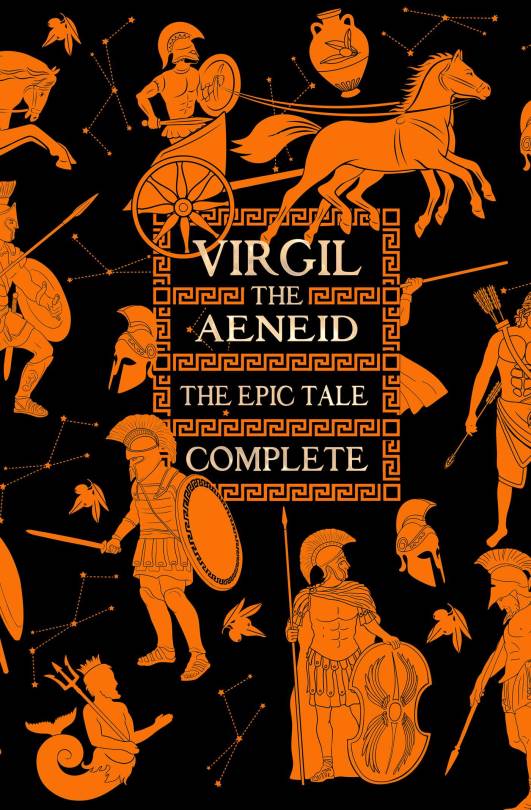
#the aeneid#vergil#epic#book poll#have you read this book poll#polls#i will not say virgil i dont care what anyone says
35 notes
·
View notes
Text
also!!!
We wet the bed; i know, o host, we were wrong, ask why? there was no urinal.
O walls, you have held up so much tedious graffiti that I am amazed you have not already collapsed in ruin
I sing the fullers and the screech owl, not arms and the man (parody of the beginning of the aeneis)
barbara barbaribus barbabant barbara barbis (tongue twister, i couldnt for the life of me find an english translation but its sometjing along the lines of ' they babbled barbaric things under their barbaric beards')
i want to share with you some of my favourite graffiti from Pompeii
“Weep, you girls. My penis has given you up. Now it penetrates men’s behinds. Goodbye, wondrous femininity!“
“Amplicatus, I know that Icarus is buggering you. Salvius wrote this.“
“We two dear men, friends forever, were here. If you want to know our names, they are Gaius and Aulus.“
“Floronius, privileged soldier of the 7th legion, was here. The women did not know of his presence. Only six women came to know, too few for such a stallion.“
“On April 19th, I made bread.“
“ I have buggered men.“
“If anyone does not believe in Venus, they should gaze at my girlfriend.“
“It took 640 paces to walk back and forth between here and there ten times.“
“Chie, I hope your hemorrhoids rub together so much that they hurt worse than when they every have before!“
“Epaphra is not good at ball games.”
“Two friends were here. While they were, they had bad service in every way from a guy named Epaphroditus. They threw him out and spent 105 and half sestertii most agreeably on whores.“
“Secundus likes to screw boys.“
336K notes
·
View notes
Text
"Das Lateinische ist heute aus der Mode gekommen;
doch um euch die Wahrheit zu sagen,
so verstand er genuegend Latein,
um Motti entziffern zu koennen,
sich ueber Juvenal auszulassen,
an den Schluss eines Briefs ›vale‹ zu setzen,
und er erinnerte sich, wenn auch nicht fehlerlos,
an zwei Verse aus der Aeneis,
Er hatte keine Lust,
im chronologischen Staub
von Beschreibungen der Weltgeschichte herumzuwühlen;
aber Anekdoten vergangener Tage,
von Romulus bis zu unsrer Zeit,
bewahrte er in seinem Gedaechtnis."
alexander puschkin; eugen onegin
Erstes Kapitel VI
0 notes
Text

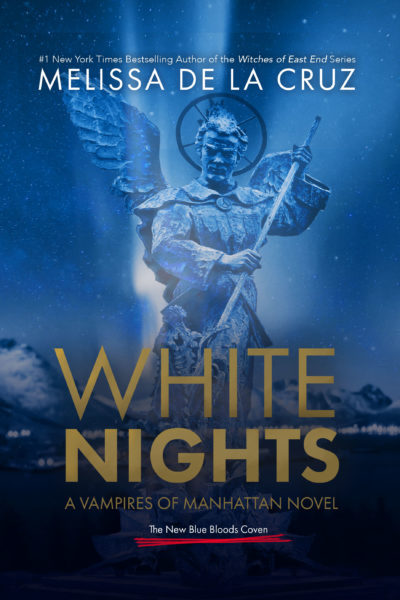
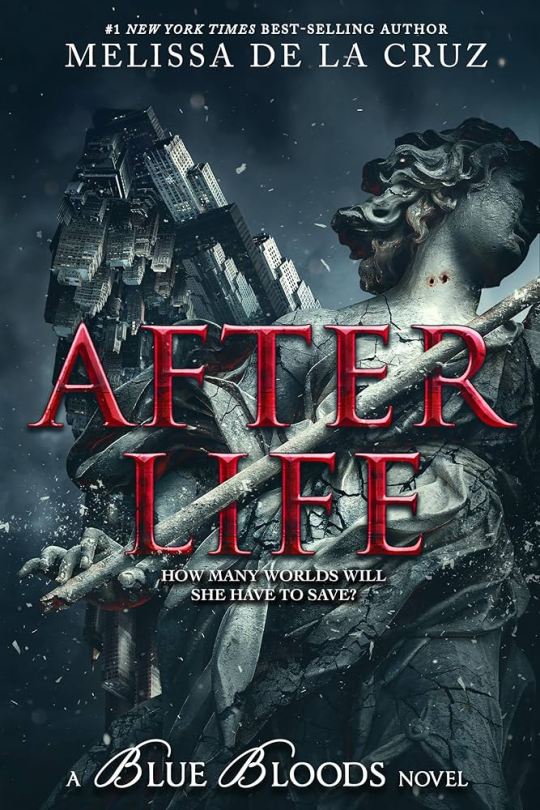
Antike (ca. 2000 vChr. bis ca. 500 nChr.)
Gilgamesch-Epos
Homer: Ilias, Odyssee
Äsop: Fabelsammlung
Caesar, Gaius Iulius: Der gallische Krieg
Vergil: Aeneis
Ovid: Metamorphosen
Tacitus, Publius Cornelius: Germania
Augustinus, Aurelius: Bekenntnisse
Herodot: Historien
Mittelalter (500-1500)
Beowulf
Murasaki Shikibu: Die Geschichte vom Prinzen Genji
1001 Nacht
Nibelungenlied
Gottfried von Straßburg: Tristan
Wolfram von Eschenbach: Parzival
Chaucer, Geoffrey: Die Canterbury-Erzählungen
Renaissance (1500-1600) und
Barock (1600-1720)
Boccaccio, Giovanni: Das Dekameron
Brant, Sebastian: Das Narrenschiff
Machiavelli, Niccolö: Der Fürst
More, Thomas: Utopia
Rabelais, Franois: Gargantua und Pantagruel
Cervantes Saavedra, Miguel de: Don Quijote
Grimmelshausen: Der Abentheurliche Simplicissimus Teutsch
Aufklärung (1720-1785)
Hobbes, Thomas: Leviathan
Fielding, Henry: Die Geschichte des Tom Jones, eines Findlings
Voltaire: Candide
Sterne, Laurence: Leben und Ansichten von Tristram Shandy, Gentleman
Rousseau, Jean-Jacques: Emile oder Über die Erziehung
Kant, Immanuel: Kritik der reinen Vernunft
Sturm und Drang (1765-1790)
Goethe, Johann Wolfgang von: Die Leiden des jungen Werthers
Bürger, Gottfried August: Münchhausen
Klassik (1786-1832)
Defoe, Daniel: Robinson Crusoe
Swift, Jonathan: Gullivers Reisen
Goethe, Johann Wolfgang von: Die Wahlverwandtschaften
Kleist, Heinrich von: Michael Kohlhaas
Romantik (1798-1835)
Arnim, Achim von/Brentano, Clemens: Des Knaben Wunderhorn
Grimm, Jacob und Wilhelm: Kinder- und Hausmärchen
Austen, Jane: Stolz undVorurteil
Eichendorff, Joseph Freiherr von: Aus dem Leben eines Taugenichts
Andersen, Hans Christian: Märchen
Gogol, Nikolai: Tote Seelen
Balzac, Honore de: Verlorene Illusionen, Glanz und Elend der Kurtisanen
Bronte, Charlotte: Jane Eyre
Bronte, Emily: Die Sturmhöhe
Huge, Victor: Die Elenden
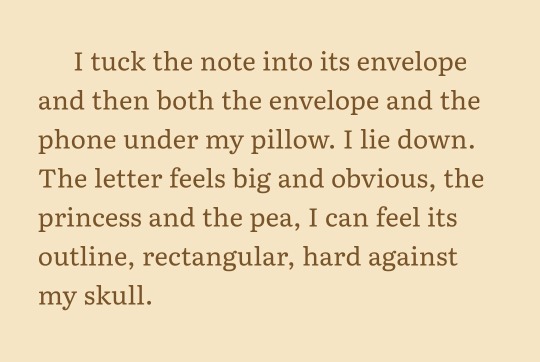
Biedermeier und Vormärz (1815-1848)
Heine, Heinrich: Buch der Lieder, Deutschland. Ein Wintermärchen
Büchner, Georg: Lenz
Droste-Hülshoff, Annette von: Die Judenbuche

Moderne (1850-1968)
Melville, Herman: Moby Dick
Beecher Stowe, Harriett: Onkel Toms Hütte
Keller, Gottfried: Dergrüne Heinrich
Dickens, Charles: Große Erwartungen
Dostojewski, Fjodor: Der Idiot
Tolstoi, Lew: Krieg und Frieden
Mark Twain: Tom Sawyers Abenteuer
Storm, Theodor: Der Schimmelreiter
Wilde, Oscar: Das Bildnis des Dorian Gray
Lagerlöf, Selma: Gösta Berling, Nils Holgersson
Fontane, Theodor: Effi Briest
Mann, Thomas: Buddenbrooks, Der Zauberberg
Proust, Marcel: Auf der Suche nach der verlorenen Zeit
Joyce, James: Ulysses
Babel, Isaak: Die Reiterarmee
Fitzgerald, Francis Scott: Der große Gatsby
Kafka, Franz: Der Prozess, Das Schloss
Woolf, Virginia: Mrs. Dalloway
Hesse, Hermann: Der Steppenwolf, Das Glasperlenspiel
Döblin, Alfred: Berlin Alexanderplatz
Remarque, Erich Maria: Im Westen nichts Neues
Roth, Joseph: Hiob, Radetzkymarsch
Traven, B.: Das Totenschiff
Fallada, Hans: Kleiner Mann - was nun?
Mann, Klaus: Mephisto
Steinbeck, John: Früchte des Zorns
Orwell, George: Farm der Tiere
Machfus, Nagib: Die Midaq-Gasse
Camus, Albert: Die Pest
Greene, Graham: Der dritte Mann
Dürrenmatt, Friedrich: Der Richter und sein Henker
Nabokov, Vladimir: Lolita
Tomasi di Lampedusa, Giuseppe: Der Leopard
Frisch, Max: Homo Faber
Aitmatow, Tschingis: Dshamilja
Grass, Günter: Die Blechtrommel
Solschenizyn, Alexander: Ein Tag im Leben des Iwan Denissowitsch
Wolf, Christa: Der geteilte Himmel
Bulgakow, Michail: Der Meister und Margarita
Garcia Märquez, Gabriel: Hundertjahre Einsamkeit
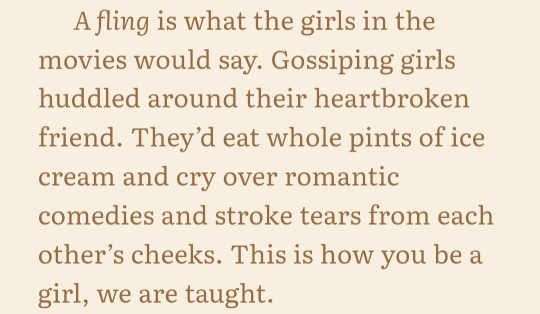
Gegenwart (ab 1968)
Lenz, Siegfried: Deutschstunde
Kertesz, Imre: Roman eines Schicksallosen
Eco, Umberto: Der Name der Rose
Jelinek, Elfriede: Die Klavierspielerin
Kundera, Milan: Die unerträgliche Leichtigkeit des Seins
Morrison, Toni: Menschenkind
Vargas Llosa, Mario: Das Fest des Ziegenbocks
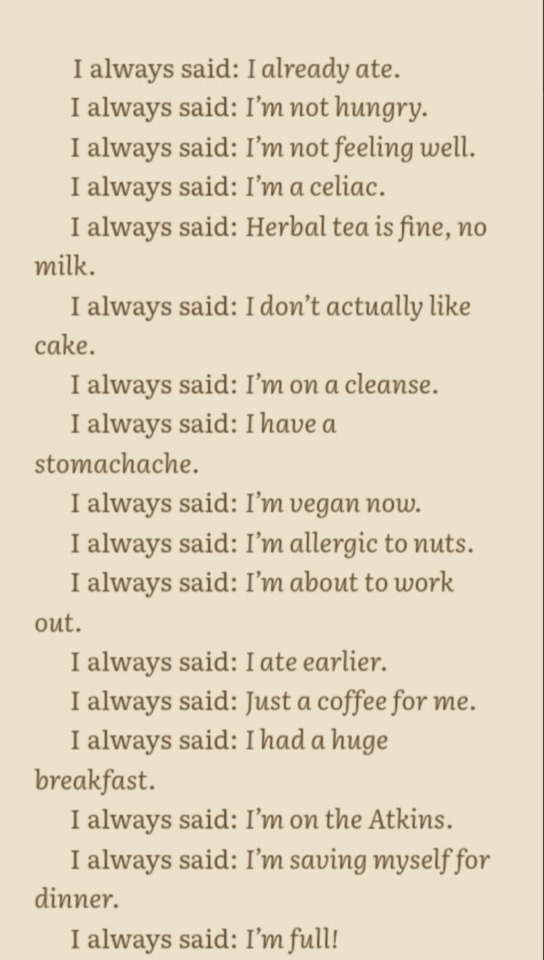
0 notes
Text
Upstream: Sparking Kids’ Imaginations with Stories - Heidi White
A Christian Classical Education adempts to cultivate wisdom and virtue through nourishing the soul on goodness, truth and beauty by means of the great books and the liberal arts.
Eine christliche klassische Bildung kultiviert Weisheit und Tugend in dem sie die Seele am Guten, dem Wahren und dem Schönen nährt mit Hilfe der großen Bücher und der freien Künste.
Heidi White
Upstream Sparking Kids’ Imagination with Stories
Anselm Society
Um der Komplexität und der Finsternis dieser Welt zu begegnen brauchen wir Unterscheidungsvermögen und Weisheit und den Mut tugendhafte Taten zu setzen.
Und das ist das Ziel, das Telos der Bildung.
J rr tolkien subcreator quote
Warum sind wir hier?
Wer sind wir?
Was ist eine Person?
Plato
Head Mind Thoughts
Chest Vermittler, Herz, Nobel, Geschichten geprägt
Belly Appetities
Geschichten werden zum Mobiliar unseres Geistes.
Warum heidnische Geschichten?
Märchen modelled after the gospel.
Mythe, Sagen, Geschichten formen die Seele, weil sie die Wahrheit über die große Geschichte erzählen.
Es gibt zwei Ströme des Wissens: Logos und Mythos. Logos als das verstandesmäßige, propositionale Wissen mit dem wir alle vertraut sind. Daneben gibt es einen zweiten Strom: Mythos, sinnstiftende, seelenformende, Vorstellungsvermögen bauende Geschichten, die uns helfen die Welt zu verstehen.
Nach Norms and Nobilities - Dr. David Higgs
Mythos ist ein primärer Weg die Wahrheit
Splintered Fragment of the true light Jrr
Ich behaupte, dass moderne Christen konditoniert sind die Bibel primär als Logos zu verstehen.
Kirchenväter
Sei wie die Biene gehe von Blume zu Blume und sammle den Nektar und lasse den Rest zurück.
Incarnated Stories are a template for us. Shane Morris
Jede Geschichte beginnt mit einem friedlichen Anfang, einer Schöpfung einer Edenzeit. Hier werde wir mit den Charakteren vertraut gemacht.
Zweitens kommt der Fall. Es ist eine Schlange im Gras, ein Monster versteckt, ein Bösewicht, auch die Gesellschaft als Monster.
Prophetie
Ein Held erhebt sich, die Erlösung beginnt, der Held muss trainiert werden, wachsen um der Aufgabe gerecht werden zu können.
Der Held muss einen symbolischen oder metaphorischen Tod sterben. Gandalf, Elisabeth Bennet Stolz und Vorurteile müssen sterben. Er muss eine heroische Tat vollbringen die Opfer, Liebe und Mut verlangt um das Monster zu besiegen.
Zum Schluss erfolgt die Wiederherstellung sowohl in der Komödie als auch in der Tragödie. In der Komödie Hochzeit, in der Tragödie die richtigen sind gestorben, es kann eine neue Schöpfung geben.
Schöpfung, Sündenfall, Erlösung, Wiederherstellung, das ist das Evangelium.
Wo fangen wir an?
Kinderbibel - Schön illustriert, Sprache ist wichtig
Märchen
Readalout revival - Listen wichtiger Bücher
Epen - Illiad, Odysee, Aeneis
Technologie für uns Christen ist da um die Zeit aus zu kaufen.
Böse in Geschichten treffen bereitet uns darauf vor das Böse in der Welt an zu treffen.
#christentum#weltanschauung#klassische christliche bildung#kultur#kosmologie#geschichte#bildung#schule#Kepler Akademie
0 notes
Text
Z cyklu Eseje: Eseje 1, sv. 1, č. 1: Bílý jezdec
Frye píše, že pokud se v literatuře 19. století objevila pozitivní hrdinka, měla nejspíš slonovinově bílou pleť a zářivě světlé vlasy. Naopak snědá hrdinka s tmavými nepoddajnými vlasy byla předzvěstí úkladů, zrady a lsti.
Ne tak dnes: netvor je skoro výhradně blonďatý a slonovinově bílý, obléká oblek nebo uniformu, zatímco sympatičtí hrdinové jsou neupravení a barvití. Namátkou: Hunger Games, Divergent, Tra o Hrůny, Boys, Resident Evil, Avatar, Tanec s vlky, Star Wars... Řád je podezřelý (dědictví modernismu), chaos je diverzita (odkaz postmoderny).
Řád je nacismus, říká se polopatě ve Star Wars. Lesní banditi ale na zlého vladaře vyzrají (archetyp Robina Hooda). Odpor vernakulární kultury proti oficiální ideologii eposu. Naopak celá koloniální imaginace stojí na krásných uniformovaných bílých útvarech, které převálcují Indiány, Indy, Afričany, zkrátka barevné a folklor. Ale tahle tradice není odvěká.
V Ílias nebo Aeneis je situace složitější, protože jak Achajci, tak Trójané jsou bílí, krásní a vznešení. Příběh se točí stejnou měrou kolem Achilla, Hektora i Patrokla. Bitva Aenea a Turna je tak uhrančivá, protože jsou si oba rovní. Hrdinové (naše strana - Římani, Řekové) a jejich sokové (Latinové, Trójani) jsou si veskrze podobní, jsou stejně dobří - jen některé mají bohové radši. Nejsou tu hrdinové a monstra. V tom leží krásná tragičnost antických cyklů.
V artušovském cyklu už je protistrana démonická. Nelidskými jsou i nepřátelé v raně středověkých kronik��ch (ariáni jsou něco jako skřeti, Frankové je můžou kosit po tisících, je to velká legrace a patří jim to). Tenhle kontrast už je ale nějakým způsovem u Tacita nebo Cézara. Vydrží až do kukluxklaního Zrození národa, až po Disneyho Sněhurku. Bílá a černá, řád a ne-foremnost, mramor a temný les.
Není divu, že se tenhle archetyp setřásl - po Osvětimi už není možné psát komiksy, řekl Stalin.
Dneska jsou padouši dobře upravení blonďáci a blondýny z ďábelských korporátů. Je to úmorně nudný a umrtvující klišé. Je ale těžké to postavit naopak: jak resuscitovat bílé jezdce?
Jak mohlo internetovým rasistům vadit, že je v Prstenech moci černoch nebo černoška? Když proti skřetům vyjede jízda Númenoru, má bílé koně a blištivé zbroje, všichni jsou krásní, jsou to ti nejlepší z nejlepších, dorazili ze západu na východ, je to jak americká armáda za druhé světové války, její poslední spravedlivé angažmá, srdce plesá, že se člověk může oddat vznešenosti krásy a síly, bez toho aby to čpělo imperialismem. Taky legitimitu téhle scény trvalo vybudovat pět dílů a taky její následky musí být pro hrdiny tragické. Ale opět, kdy naposled se Zápaďan mohl ztotožnit s převahou síly a nepřipadat si nepatřičně?
Ale i opak se dá pořád ještě udělat nápaditě. Stvořitel (The Creator) dokázal to, o čem jsem dlouho jen snil: postavit konflikt tak, aby se divák začal obávat, už jen když zaslechne angličtinu. Film vystavěný v paralele ke snímkům o válce ve Vietnamu. Americká armáda (U.S. ARMY) jako hypermoderní fašista, jako Sauron (oko Nomáda) a jako Impérium z hvězdných válek v jednom (když na konci z nebe spadne děsivý Nomád, je vyobrazený jako zničená Hvězda smrti). Protivníky jsou skuteční rebelové: ne-bílí, lidi z východní a jižní Asie, roboti, krávy (juxtapozice obrazů jsou více než zřetelný). "Víš, co by se vám stalo, kdybyste prohráli?" ptá se jeden z rebelů zajatého Američana. "Vůbec nic." Jen povstalci by konečně mohli v klidu žít.
Stvořitel je skvělý film, protiamerický jen zdánlivě, spíš vypointoval, proč jsme o bílých jezdcích přestali psát oslavné příběhy. Musel jsem si často připomínat, že se jedná o americký film s americkou produkcí: jen opravdu statečná společnost se sama umí nazřít jako děsivá, umí se podívat na svůj nepěkný obraz do zrcadla (kdo na planetě to vedle Němců zvládl?).
[Estetika bílých jezdců pomáhá zorientovat se dodnes: izraelská hi-tech armáda drtící hemžící se skřety v arafatkách se vepisuje do předmoderního schématu (skřeti přece nemají civilisty, jsou rasou-armádou; svědomí zůstává klidné); ukrajinští zbojníci a kozáci se zase postmoderně postavili šedi opričnické fašistické dystopie.]
0 notes
